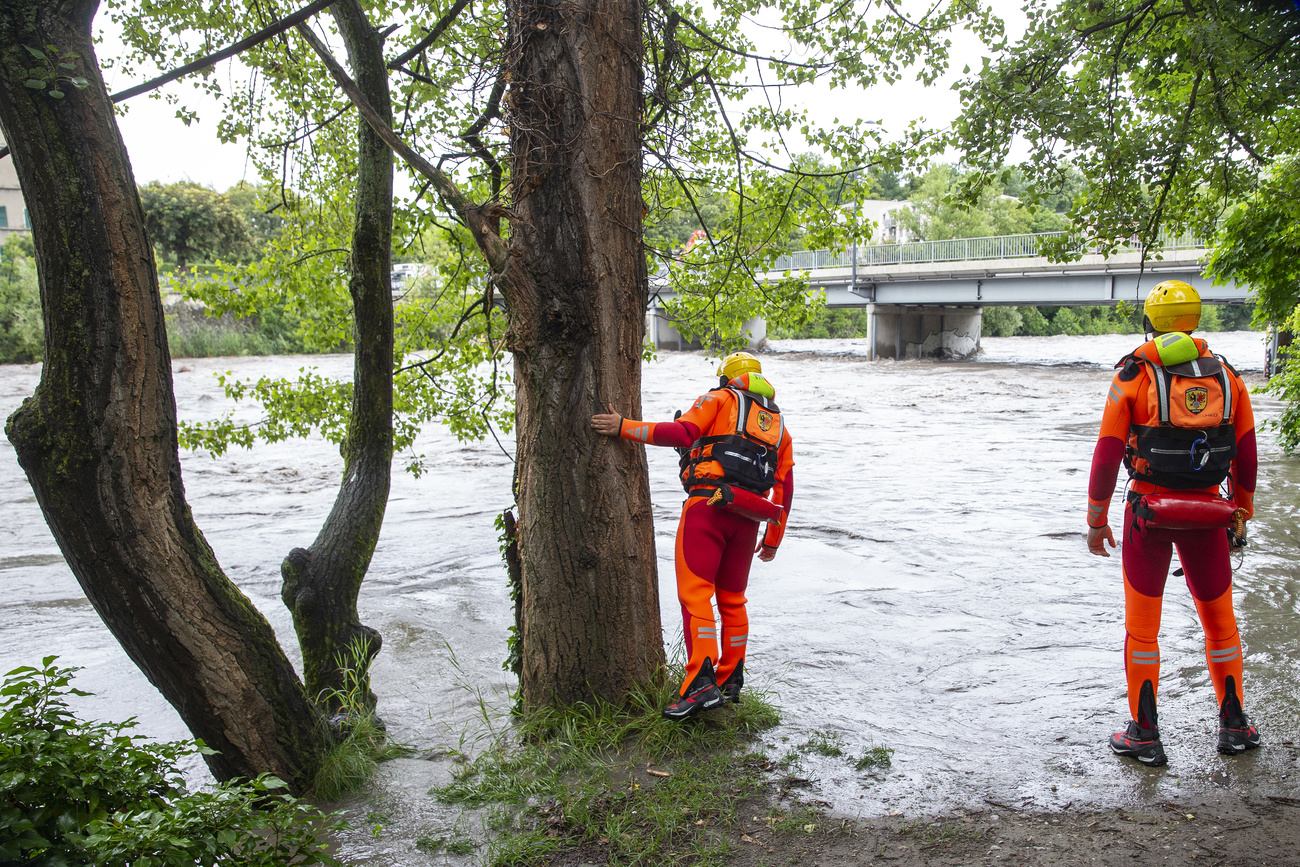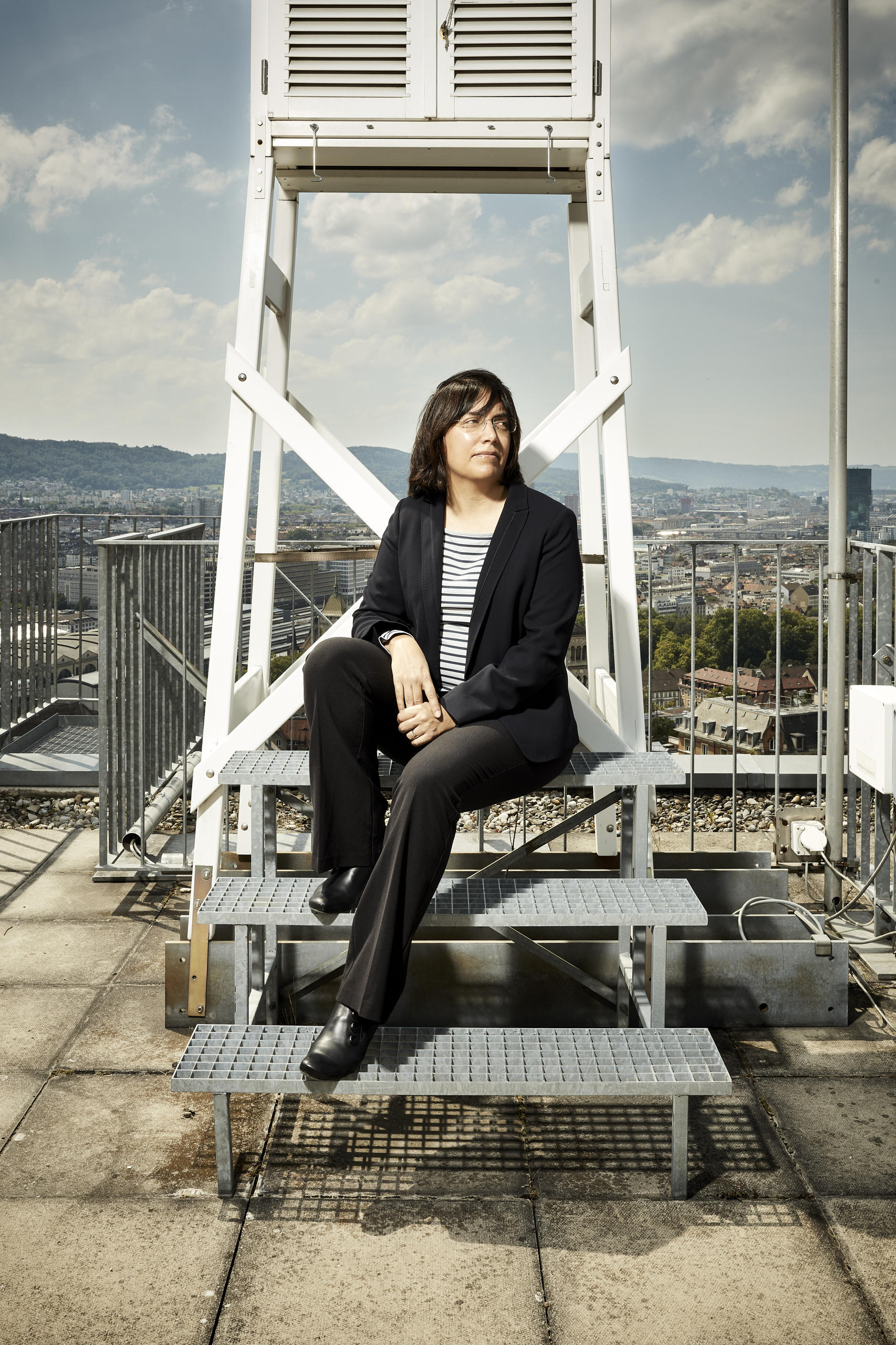Greta was right: our house is burning down
This summer's extreme weather events confirm what scientists have been saying for years: there is no more time to waste in saving the Earth from climate catastrophe.
“Our house is burning,” said climate activist Greta Thunberg at the World Economic Forum in Davos in 2019. “I don’t want your hope. I don’t want you to be hopeful. I want you to panic. I want you to feel the fear that I feel every day and I want you to act.”
Two years later, new science is backing up her words. According to a recent studyExternal link, almost 10% of deaths worldwide can be attributed to abnormal temperatures. Excessive heat and cold have been found to be the cause of five million deaths every year. Another studyExternal link has also shown that heat-related deaths can be attributed to recent human-induced climate change.
Recent wildfires in Greece destroyed forests and homes, displacing hundreds of people. In Italy, record heat caused severe fires in the south and killed over 20 million animals.
The toll of the floods in Germany and Belgium rose to more than 200 victims and more than 150 people are still missing. Switzerland was not spared by the torrential rains, which raised the water levels of rivers and lakes, causing millions of francs worth of damage and endangering the safety of nuclear power plants on the River Aare.

More
Switzerland issues more flood warnings after heavy thunderstorms
In Henan province, one of China’s most populous and poorest areas, at least 33 people died in floods that inundated entire neighbourhoods and even the subway system. Survivors remember with horror the hours they spent trapped underground. More than 200,000 people were forced to leave their homes.
How have you and those around you been affected by climate change? We’d like to hear from you – tell us about your experience.
Facing up to responsibilities
The largest recent study on climate effects – the newest assessment by the Intergovernmental Panel on Climate Change (IPCC) – has confirmed that this summer’s exceptional events would not have occurred without man-made greenhouse gas emissions.

More
UN climate report paints bleak picture for decades ahead
Switzerland-based climatologist and researcher Sonia Seneviratne, considered one of the world’s most influential climate specialists, stressed the urgency of finding immediate solutions to curb emissions. My colleague Luigi Jorio met her recently. Here’s some of what she told us:
Sonia Seneviratne, a climatologist at ETH Zurich and co-author of the IPCC report, explained that the heat waves and heavy rainfall are in line with what the climate models predict. The discouraging aspect is that what is happening now corresponds to what climate scientists predicted in the business-as-usual scenario, i.e. without new policies to reduce emissions. “It is as if we have done nothing for the climate,” notes Seneviratne.
One of the report’s most important messages is that change is taking place in all regions of the planet, including Switzerland. After the new CO2 law was rejected at the ballot box, Switzerland must find other solutions to ensure that the country can play its part in reducing global emissions, according to Sonia Seneviratne.
She believes it will be inevitable to introduce the “polluter pays” principle for emissions as well, as was successfully done with the waste bag tax. “It is important to talk about solutions, renewable energies and the fact that we could lead an absolutely pleasant life even with a net-zero emissions balance,” she stresses.
Don’t miss Luigi’s fascinating portrait of Seneviratne:

More
‘We are at the start of a new climate regime’
In response to the climate urgency, the Swiss government this week adopted a counter-proposal to the popular initiative “For a healthy climate (Glacier Initiative)”, which Swiss voters will likely decide on within a few years. The aim of both the original legislation and the counter-proposal is to bring Swiss greenhouse gas emissions to zero by 2050, but without banning fossil fuels.
What can be done on an individual and governmental to reverse or stop the effects of climate change? We’d love to hear your thoughts.
Technological (Im)potence
Governments are placing hope in technology to help curb climate change, and Switzerland is home to some of the most-touted technological solutions.
One of those comes from Zurich-based ClimeworksExternal link, which is developing a machine to capture carbon dioxide in the air. A first trial will soon be carried out in Iceland, where Climeworks will work with Icelandic CarbfixExternal link, which turns CO2 into stone stored underground, to test these negative-emission technologies.

More
Switzerland and Iceland join forces to ‘capture’ CO2
Technology is proving to be a valuable ally in the fight against the Covid-19 pandemic. A team at the Swiss Federal Institute of Technology in Lausanne recently discovered a correlation between glucose levels and the severity of SARS-CoV-2 infection. This discovery was made possible thanks to artificial intelligence, which was used to read and interpret thousands of scientific studies on Covid-19. Don’t miss our in-depth report on this discovery soon, on swissinfo.ch!
In other news…
And finally, in technology news that has nothing to do with climate change or pandemics, a few promising developments from the world of robotics:
The Biorobotics Laboratory (BIOROB) at Lausanne’s Federal Institute of Technology EPFL has developed an innovative robot, AgnathaXExternal link, capable of swimming and reproducing the locomotion of aquatic animals. The aim is to study the principles of movement generation and understand why some vertebrate animals retain locomotor skills after spinal cord injury. The results of this study could have important implications for the recovery of motor function in those who have lost it.
And thanks to an algorithm developed by researchers at the University of ZurichExternal link, an autonomous drone outperformed two human pilots in a drone race for the first time. This is an unprecedented result in the world of flight, where the best human pilots had always beaten autonomous systems until now.
Do you have any comments, remarks, or questions about the latest in science from Switzerland? Let’s talk about it over a (virtual) coffee.

In compliance with the JTI standards
More: SWI swissinfo.ch certified by the Journalism Trust Initiative









Join the conversation!